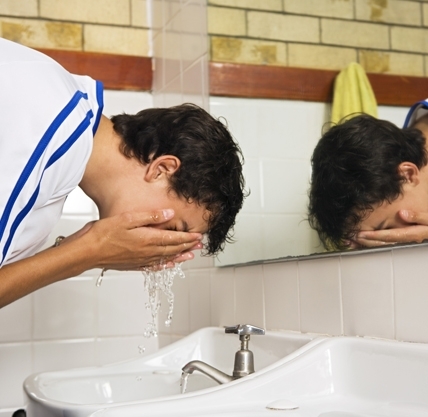
How do I deal with my 17-year-old son's behavior issues? His TBI was three years ago and over the last year, especially, he uses digital stimulation to make himself go to the bathroom. As far as we can find out, there is no medical reason for it. I think it might be a way for him to have some sexual satisfaction. He was very social before his accident and he isn't now. His friends do not come around anymore. What is the best way to deal with this? He causes himself to bleed and it is a cycle I can’t seem to help him stop.
There may be a combination of factors that contribute to your son’s persistence with digital penetration as a voiding method. Is voiding the only activity of daily living (ADL) that your son is experiencing a challenge with? If not, he may benefit from an occupational therapy evaluation to assess all of his areas of need and devise a treatment plan for him to be independent in his ADLs.
As you stated above, you believe the experience of pleasure or satisfaction drives this behavior. Perseveration (the tendency to “get stuck” on thoughts and/or behavior) and disinhibition (poor behavioral control) may also contribute to his behavior. Is your son aware that this method of voiding is not ideal and can lead to medical complications? Is he open to trying other methods to maintain comfortable and regular bowel movements? Working with a psychotherapist who specializes in brain injury recovery may be helpful in understanding his problem-solving skills and working with him to develop better alternatives.
To address the second part of your email, social isolation and a decrease in community participation are unfortunately not uncommon after a TBI. Social skills can be affected by changes in problem solving, impulsivity, initiation, attention, and so on. I would recommend reaching out to your state’s brain injury association or alliance as they typically have support groups and other resources that may be of great assistance to you and your son through the recovery process. You may also reach out to your school district to see if they run social skills groups for individuals of your son’s age and functioning level. Understanding that other individuals are dealing with similar issues and learning coping skills within a group can be very helpful.
About the author: Jacquelyn Borg, PhD
Jacquelyn Borg, PhD is a clinical child psychologist and manager of the Department of Neuropsychology and Neurorehabilitation for Children's Specialized Hospital in New Jersey. She is an affiliate member of the medical staff at the Hospital.

